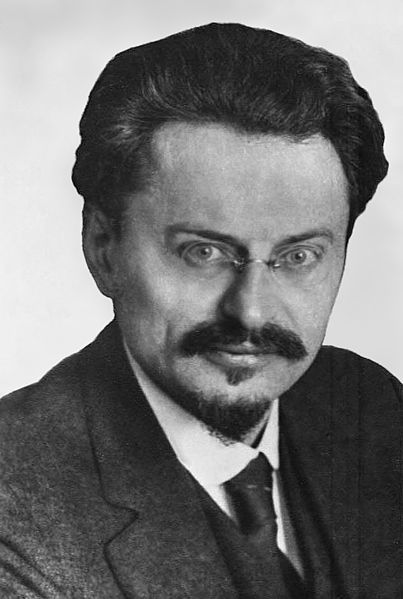Socialist democracy is a political system that aligns with principles of both socialism and democracy. It includes ideologies such as council communism, democratic socialism, social democracy, and soviet democracy, as well as Marxist democracy like the dictatorship of the proletariat. It was embodied in the Soviet system (1922–1991). It can also denote a system of political party organization like democratic centralism, or a form of democracy espoused by Marxist–Leninist political parties or groups that support one-party states. The Socialist Federal Republic of Yugoslavia (1945–1992) styled itself a socialist democracy, as did the People's Republic of Bulgaria (1946–1990) and the Socialist Republic of Romania (1947–1989).
Leon Trotsky was the leader of the Left Opposition which advocated for an alternative set of policies to Stalin.
Soviet democracy, or council democracy, is a type of democracy in Marxism, in which the rule of the population is exercised by directly elected soviets, or workers' councils. The councils are directly responsible to their electors and bound by their instructions using a delegate model of representation. Such an imperative mandate is in contrast to a trustee model, in which the elected delegates are only responsible to their conscience. Delegates may accordingly be dismissed from their post at any time or be voted out (recall).
The Soviet of Workers' Deputies of St. Petersburg in 1905: Leon Trotsky in the center.


